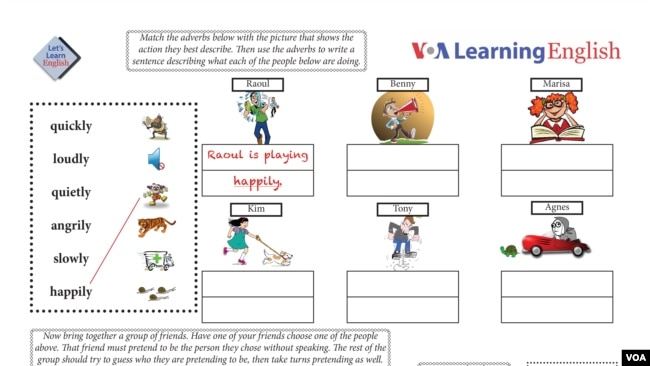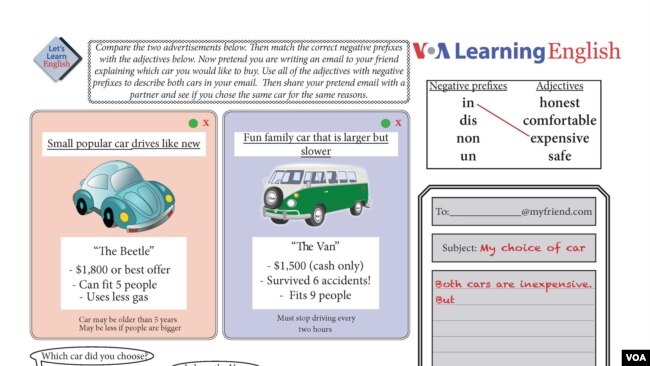Summary
Anna's New Year’s Resolution is to try something new. She auditions for a play. Will she get the part?Speaking
In this video, learn how to say the new words. Then learn about asking for and giving feedback.
Pronunciation
Conversation
Anna: Happy New Year! Some people, at the start of a new year, make a resolution
-- a promise to yourself to be better. I thought about my resolution
carefully. I want to be an actor on the stage! Today I will audition for a show called "The Woods Are Alive!" Wish me luck!
Director: Next! What is your name?
Anna: My name is Anna Matteo.
Director: Are you ready to audition?
Anna: (warms up voice) Yes.
Director: Great. Let's begin on page 1. Here is the story. You are lost in the woods. You are searching desperately for a way out. Suddenly, you hear something.
Director: Now, say your line.
Anna: 'What was that? Hello. Is someone there?'
Director: Anna, you are speaking too softly. Can you speak more loudly and a little more, um, seriously?
Anna: Yes, of course I can. 'What was that? Hello. Is someone there?' Is that loud enough?
Director: Yes, that is loud enough. Let's turn to page 25. In this scene, you are moving slowly and quietly through the woods.
Director: Anna. Anna! You are walking quickly and loudly. Walk slowly and quietly.
Anna: I'm walking slowly and quietly. I am walking…
Director: Anna. Anna. You don't need to say "slowly" and "quietly."
Alright, let's try the last scene. Turn to page 48. I say my line first, then you say your line.
Director: 'You will never get out of these woods alive! Mwa-ha-ha-ha-ha Mwa-ha-ha-ha-ha!'
Anna: 'Yes, I will.'
Director: Okay, Anna, you said that line -- you said that line really late. You need to say it earlier.
Anna: Sorry. Sorry. Let me try again.
Director: 'You will never …'
Anna: 'Yes, I will.'
Director: '… get out of the woods alive.'
Anna: I was too early, wasn't I?
Director: Yes. Yes, you were.
Anna: Director, how am I doing?
Director: You know, Anna. I think that I have the perfect part for you.
Director: The costume is in the back. Please go try it on.
Anna: Awesome! (Anna returns as a tree.)
Director: Oh, Anna, that fits you perfectly!
Anna: I'm a tree. I'm a tree in … "The Woods Are Alive!" Yes!
Anna: My new year is starting awesomely! Excuse me, Director! I have a great idea for my tree. Oh, wait! Until next time!
Writing
In this lesson, Anna tries something new. What new activity do you want to try in 2017? Why do you want to do it? Write to us by email or in the Comments section.Click on the image below to download the Activity Sheet and practice using adverbs as well as acting out and guessing everyday activities.

Activity Sheet Lesson 40
Learning Strategy
Learning Strategies are the thoughts and actions that help make learning easier or more effective.The learning strategy for this lesson is self-evaluate. When we speak English or try to do something new, it helps to self-evaluate, or check how well we are doing it.
In this lesson, when Anna asks the director of the play, "How am I doing?" she wants to learn how well she is acting. The director tells her that she said her line too late. Later, Anna notices a problem: "I was too early, wasn’t I?' She is self-evaluating. This strategy can help to make her a better actor.
Do you ever self-evaluate when you speak English? Write to us about it in the Comments section or send us an email. Teachers, see the Lesson Plan for more details on teaching this strategy.
